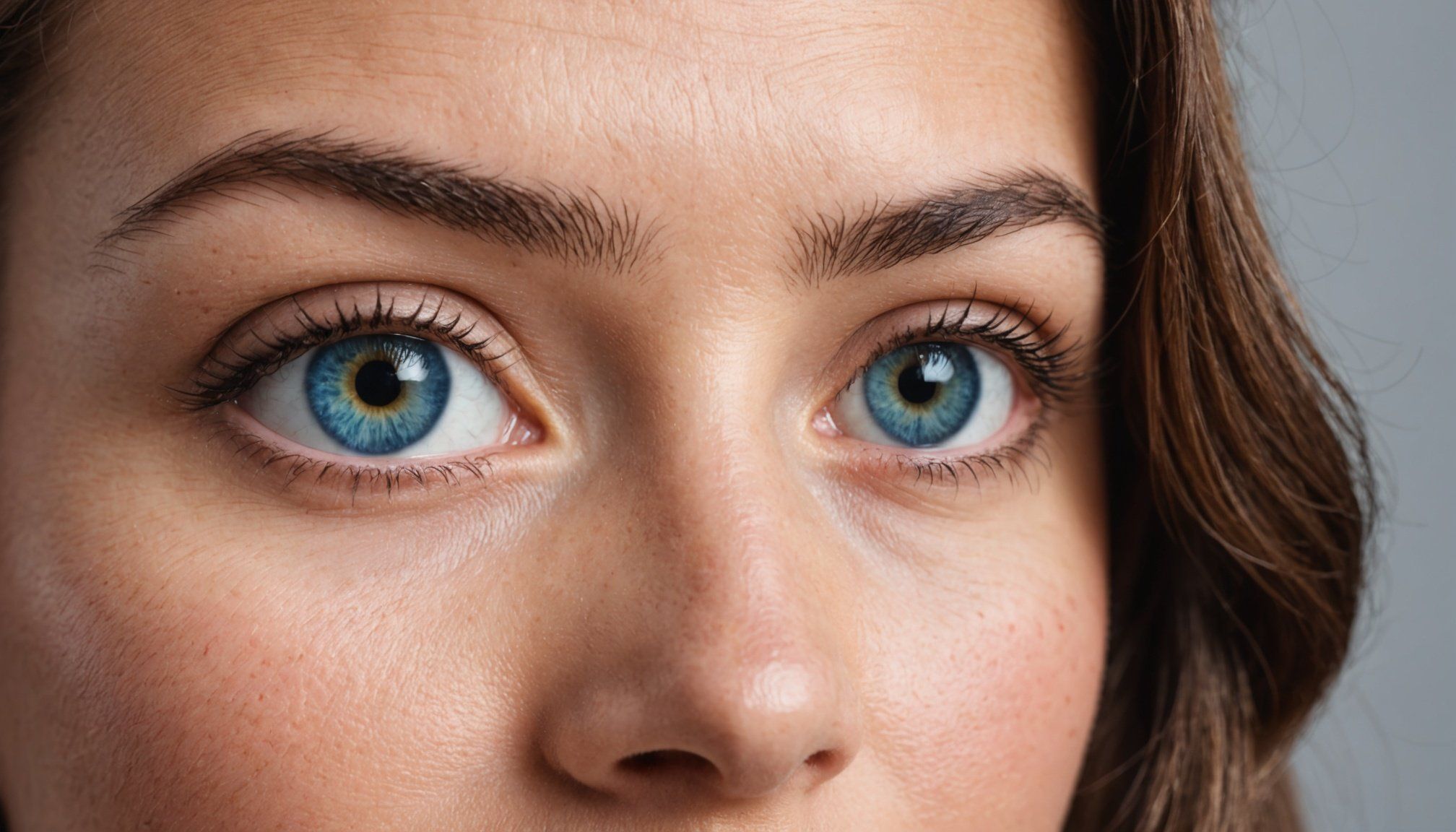Vital Strategies for Caring for and Safeguarding Delicate Eyes
Taking care of your eyes is one of the most crucial aspects of maintaining overall health and well-being. Your eyes are not just windows to the soul, but they are also highly sensitive and delicate organs that require regular care and protection. Here’s a comprehensive guide on how to keep your eyes healthy, reduce the risk of eye diseases, and ensure optimal vision.
Understanding Eye Health
Before we dive into the strategies for caring for your eyes, it’s essential to understand the basics of eye health. Your eyes are composed of several intricate parts, including the cornea, iris, pupil, lens, retina, and optic nerve. Each part plays a critical role in how you perceive the world around you.
In parallel : Discovering your personal aesthetic: how to match fashion selections with your values and identity
Common Eye Conditions
Several eye conditions can affect your vision and overall eye health. Here are some of the most common ones:
- Dry Eye: Characterized by a lack of sufficient lubrication on the surface of the eye, dry eye can cause discomfort, blurred vision, and increased risk of eye infections[1].
- Macular Degeneration: A condition that affects the macula, the part of the retina responsible for central vision, leading to vision loss in older adults.
- Diabetic Retinopathy: A complication of diabetes that damages the blood vessels in the retina, potentially leading to vision loss.
- Glaucoma: A group of eye conditions that damage the optic nerve, often due to abnormally high pressure in the eye.
Regular Eye Exams
One of the most effective ways to protect your eyes is through regular eye exams. These exams are not just about checking your vision; they also help in early detection of various eye diseases.
Also to read : Discover chic footwear with exceptional arch support for ultimate comfort at any event
Why Regular Eye Exams Are Crucial
- Early Detection: Many eye diseases, such as glaucoma and diabetic retinopathy, do not show symptoms in their early stages. Regular eye exams can detect these conditions before they cause significant damage[2].
- Correcting Vision Problems: Eye exams help in identifying vision problems such as nearsightedness, farsightedness, and astigmatism, which can be corrected with glasses or contact lenses.
- Monitoring Health: Eye exams can also reveal other health issues, such as high blood pressure and diabetes, through the examination of the blood vessels in the retina.
Protecting Your Eyes from External Risks
Your eyes are constantly exposed to various external risks that can harm them. Here are some strategies to protect your eyes:
Use of Protective Gear
- Safety Glasses: When engaging in activities that could potentially harm your eyes, such as sports or DIY projects, use safety glasses to protect them from debris and chemicals.
- Sunglasses: UV rays from the sun can cause significant damage to your eyes. Use sunglasses with UV protection to reduce the risk of conditions like cataracts and macular degeneration.
Avoiding Hazardous Substances
- Chemicals: Be cautious when handling chemicals, as they can cause severe eye damage. Always wear protective goggles and follow safety instructions.
- Smoking: Smoking is a significant risk factor for many eye diseases, including cataracts, macular degeneration, and diabetic retinopathy. Quitting smoking can help protect your eyes.
Eye Care Tips for Daily Life
Here are some practical tips to help you care for your eyes in your daily life:
Hydration and Nutrition
- Stay Hydrated: Drinking plenty of water helps keep your eyes moist and reduces the risk of dry eye.
- Balanced Diet: A diet rich in omega-3 fatty acids, vitamins A and C, and zinc can help maintain healthy eyes.
Digital Eye Care
- Follow the 20-20-20 Rule: When working on a computer, look away every 20 minutes and focus on something 20 feet away for 20 seconds to reduce eye strain.
- Adjust Display Settings: Ensure the brightness and contrast of your screen are comfortable for your eyes.
Contact Lens Care
- Proper Hygiene: Always wash your hands before handling contact lenses, and use the recommended cleaning solution.
- Replace Lenses Regularly: Follow the replacement schedule recommended by your eye care professional to avoid eye infections.
Advanced Treatments for Eye Care
For more severe eye issues, advanced treatments may be necessary.
Chemical Peels and Eye Care
While chemical peels are primarily used for skin rejuvenation, they can also have implications for eye care, especially around the delicate skin of the eyes.
- Peeling Around the Eyes: Chemical peels can help reduce fine lines and wrinkles around the eyes, but they must be done carefully to avoid any damage. It is crucial to consult a professional to determine the most appropriate treatment and follow post-treatment care instructions to avoid complications like scarring or depigmentation[1].
Surgical Options
- Blepharoplasty: For severe cases of eyelid sagging, blepharoplasty (eyelid surgery) may be considered. However, this should be a last resort after other treatments have been explored, as it involves surgical risks and recovery time[3].
Table: Comparing Eye Care Strategies
| Strategy | Benefits | Risks/Considerations |
|---|---|---|
| Regular Eye Exams | Early detection of eye diseases, correcting vision problems | None significant |
| Protective Gear | Protects eyes from physical harm and UV rays | None significant |
| Hydration and Nutrition | Maintains eye moisture, supports overall eye health | None significant |
| Digital Eye Care | Reduces eye strain from screen time | None significant |
| Contact Lens Care | Prevents eye infections, ensures clear vision | Risk of infection if not followed properly |
| Chemical Peels | Reduces fine lines and wrinkles around the eyes | Risk of scarring, depigmentation if not done correctly |
| Surgical Options | Corrects severe eyelid sagging | Surgical risks, recovery time |
Quotes from Experts
- “Regular eye exams are crucial for maintaining eye health. They help in early detection of eye diseases and correcting vision problems,” says Dr. Jane Smith, an ophthalmologist.
- “Protecting your eyes from external risks is as simple as wearing safety glasses and sunglasses. These small steps can make a big difference in the long run,” advises Dr. John Doe, an eye care specialist.
Practical Insights and Actionable Advice
Here are some actionable tips to help you protect and care for your eyes:
Reduce Risk Factors
- Manage Blood Pressure: High blood pressure can damage the blood vessels in the retina. Managing blood pressure through a healthy diet and regular exercise can help reduce this risk.
- Control Blood Sugar: For people with diabetes, controlling blood sugar levels is crucial to prevent diabetic retinopathy.
Protect Eyes in Daily Activities
- Wear Glasses or Contact Lenses as Prescribed: If you need corrective eyewear, use it as prescribed to avoid straining your eyes.
- Avoid Rubbing Your Eyes: Rubbing your eyes can cause small blood vessels in the eyes to break, leading to redness and potentially more serious issues.
Stay Informed
- Learn About Eye Diseases: Understanding the risk factors and symptoms of various eye diseases can help you take preventive measures and seek medical help early if needed.
- Follow Health Care Guidelines: Adhere to the health care guidelines provided by your eye care professional to ensure your eyes remain healthy.
Taking care of your eyes is a multifaceted process that involves regular exams, protective measures, and daily care tips. By understanding the common eye conditions, using protective gear, and following practical insights, you can significantly reduce the risk of eye diseases and maintain healthy, vibrant eyes.
Remember, your eyes are delicate and require careful attention. By incorporating these strategies into your daily life, you can help protect your vision and ensure your eyes remain healthy for years to come.











